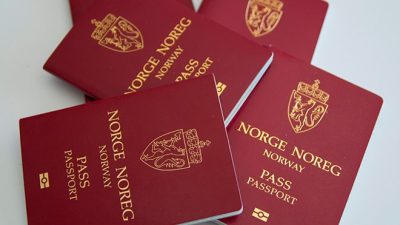Thousands of people who’ve been living and working in Norway were turned away at the border when the government suddenly imposed strict new entry rules earlier this year. The rules have since been eased but now many want compensation for economic losses.

The highly controversial rules were eased after Norway came under pressure from both EU authorities and legal experts. Several lawyers and law professors have charged that the deportations of European citizens violated Norway’s trade deal with the EU, the so-called EEA/EØS Agreement, under which Norway must honour the EU’s and European Economic Area’s allowance of the free flow of people, goods and services across borders. The quarantine hotels they were ordered to stay in, and pay for, have also drawn objections over their legality.
From May 21, everyone from EU/EEA countries who can document residence and work in Norway is being re-admitted, also if they have a temporary form of residence and work permission and are not listed in the national folkeregister of permanent residents and citizens. Those arriving from the UK, which is no longer a member of the EU, have also been exempted from an equally controversial 10-day hotel quarantine at their own expense, along with EU/EEA nationals. Quarantine at home is now being allowed.
Still no apologies
Justice Minister Monica Mæland made no apologies for the distress and financial hardship caused to all those deported or forced into quarantine hotels at the border, which newspaper Dagens Næringsliv (DN) has equated to unjust “internment.” She may be sorry now, though, as reports roll in of threatened lawsuits and compensation claims from those affected by the strict rules that initially were justified as a means of preventing imported infection.
Some Norwegian lawyers representing the Polish and Romanian chambers of commerce in Norway have sent in complaints to the EFTA Surveillance Agency (ESA), which monitors Norway’s compliance with the European Free Trade Agreement (EFTA). The goal is economic compensation for those who suffered the consequences of Norway’s strict and possibly illegal rules.
On Friday, when the rules were formally eased, Norwegian Broadcasting (NRK) reported that many of the thousands turned away at the border, or forced to stay in quarantine hotels until their case was decided, may at least get their hotel bills reimbursed. Oslo law firm Andersen & Bache-Wiig, representing around 700 EU/EEA citizens willing to challenge the Norwegian government in court, sent a notice of court action to Mæland’s justice ministry and the health ministry late last week.
(See NRK’s story here, external link, in Norwegian.)
The goal is to determine whether the quarantine hotels are legal and in line with both Norway’s constitution and human rights. “There’s a great need for a court evaluation of the quarantine hotel requirement,” attorney Lina Smorr told NRK.
Protecting the individuals
One group of expats from Poland has raised NOK 300,000 (USD 36,000) to help finance what would amount to a class-action lawsuit that also protects plaintiffs’ identities out of fear of reprisal. “In order to limit exposure of individuals, the lawsuit will probably be filed by an organization,” Smorr confirmed to NRK.
At stake is repayment of several thousand hotel bills that amounted to a major expense for the plaintiffs, many of whom have been especially vulnerable during the Corona crisis and earn relatively low incomes in Norway. More claims, for lost income and extra travel expenses, may follow in other legal action.
“We believe that Norway has acted in violation of its international obligations, when people ordered to stay in a quarantine hotel must pay their own share of the bill,” Smorr told NRK. She also things the rules were set up as a means of scaring people, especially those with family in other countries, from traveling abroad.
newsinenglish.no/Nina Berglund

